2019 IEEE CAS Singapore Chapter Talks and Seminars
- 23-01-2019: Seminar "Gradient-free Learning based on the Kernel and the Range Space", by Prof. Kar-Ann Toh, Yonsei University, Seoul, Korea.
- 29-01-2019: Seminar "Enhancing Deep BP Learning with Omnipresent Supervision Training Paradigm", by Prof. Sun-Yuan Kung, Princeton University.
- 30-01-2019: Seminar "Systematical Design Methodology of Deep Learning Networks", by Prof. Sun-Yuan Kung, Princeton University.
- 22-05-2019: Technical Talk " Further Optimization of FRM Filters", by Prof. Tapio Saramaki, Tampere University of Technology, Finland.
- 07-06-2019: Technical Talk "Iterative Learning Control and Its Application on Artificial Pancreas", by Prof. Youqing Wang, Beijing University of Chemical Technology, China.
- 20-06-2019: Technical Talk "Trend towards SW-defined radar with fully digital antenna", by Mr. Erwin de Jong, THALES Solutions Asia, Singapore.
- 25-06-2019: Technical Talk "Neuromorphic computing and its current state-of-art", by Dr. Yansong Chua, Institute for Infocomm Research (I2R), A*STAR, Singapore.
- 02-07-2019: Technical Talk "Computational brain imaging and applications in neuropsychiatric disorders", by Assoc Prof. Juan Helen Zhou, Duke-National University of Singapore Medical School, Singapore.
- 03-09-2019: Technical Talk "Energy Efficient Embedded AI for Artificial Intelligence-of-Things", by Prof. Yong Lian, York Uinversity, Canada.
- 03-09-2019: Technical Talk "Efficient FastICA Algorithms and Architectures for EEG Signal Separation", by Prof. Lan-Da Van, National Chiao Tung University, Taiwan.
- 04-09-2019: Technical Talk "Bridging ICT and Medical Technologies for Smart Disease Diagnosis", by Prof. Myung Hoon Sunwoo Ajou University, Korea.
- 04-09-2019: Technical Talk "Energy-Efficient Sensor Node Processor Design for Intelligent Sensing Applications", by Prof. Jun Zhou, University of Electronic Science and Technology of China.
- 05-09-2019: Technical Talk "Bridging ICT and Medical Technologies for Smart Disease Diagnosis", by Prof. Myung Hoon Sunwoo Ajou University, Korea.
- 09-10-2019: Seminar "Neuromorphic Audition", by Prof. Dr. Shih-Chii Liu, Institute of Neuroinformatics, University of Zurich and ETH Zurich.
- 14-10-2019: Seminar "Adaptive Sparse Coding for Screen Content and Image Compression", by Prof. Nam Ling, Santa Clara University, USA.
- 14-10-2019: Seminar "Meta Module Generation for Fast Few-Shot Incremental Learning on Image Classification", by Dr. Dongyun Lin, Institute for Infocomm (I2R), A*STAR, Singapore.
- 21-10-2019: Seminar "IoT through three applications: Lighting, Electronic Shelf Label, and Heat Cost Allocators", by Dr. Ramin K. Poorfard, VP (Technology) - Silicon labs, USA.
- 25-11-2019: Seminar "The application of computer vision in detecting facial heart rate and respiration rate", by Prof. Chuan-Yu Chang, National Yunlin University of Science and Technology, Taiwan.
- (CANCELLED) 20-12-2019: Seminar "Design Considerations for Self-Powered Wearable Biomedical Sensor", by Prof. Yong Lian, York Uinversity, Canada.
- 26-12-2019: Seminar "Physical Unclonable Function: Built-in vs Bolt-on Security Credential", by Prof. Chip Hong Chang, Nanyang Technological Uinversity, Singapore.
- 26-12-2019: Seminar "User Authentication Using Wi-Fi Based In-air Hand Gesture Signature", by Prof. Kar-Ann Toh, Yonsei University, Seoul, Korea.
Further Optimization of FRM FiltersProf. Tapio Saramaki, Tampere University of Technology, FinlandOrganized by IEEE Circuits and Systems Singapore Chapter & IEEE Signal Processing Singapore Chapter & Centre for Infocomm Technology (INFINITUS), School of EEE, NTU |
| Date : 22 May 2019 (Wednesday) Time : 3.00 PM - 4.00 PM Venue : Executive Seminar Room (S2.2-B2-53), School of EEE, NTU |
AbstractVarious approaches to synthesizing finite impulse response (FIR) filters based on the frequency response masking (FRM) technique are considered. Among these FRM FIR filters, interpolated FIR (IFIR) are treated as special cases. Originally, FRM FIR filters have been synthesized by first designing the masking filters using either linear programming or the Remez algorithm and then the periodic filter. The second approach is based on iteratively designing the masking filter pair (each masking filter pair for multistage designs) and the periodic filter until the difference between successive overall filters is within the given tolerance limits. The third approach is to apply nonlinear optimization. These three approaches are compared with each other in terms of achievable filter complexities and the ability of implementing the resulting filters efficiently in practice. For IFIR filters, the design is drastically simplified and the overall filter synthesis can be done based on iteratively designing the sub filters using the efficient Remez algorithm. Finally, it is shown that both FRM and IFIR filters can be designed so that their overall order differs only slightly from those of the direct-form FIR filters, but at the same time, the computational complexity in the filter implementation is significantly reduced Speaker BiographyTapio Saramaki was born in Orivesi, Finland, in 1953. He has received the Diploma Engineer (with honors) and Doctor of Technology (with honors) degrees in electrical engineering from the Tampere University of Technology (TUT), Tampere, Finland, in 1978 and 1981, respectively. From 1977, he has held various research and teaching positions at TUT. He was a Professor of Digital Signal Processing and a Docent (Adjunct Professor) of Communications until becoming an Emeritus Professor in 2016. Dr. Saramaki is also a Co-Founder and a System-Level Designer of VLSI Solution, Finland, specializing in efficient VLSI implementations of both analog and digital signal processing algorithms for various applications. His research interests are in digital signal processing, especially in filter and filter bank design, efficient VLSI implementations of DSP algorithms, and communications application as well as approximation and optimization theories. He has contributed to more than 300 international journals and conference articles as well as more than 10 international book chapters. He holds three worldwide used patents. Dr. Saramaki is the Fellow of IEEE and the Russian A. S. Popov Society for Radio-Engineering, Electronics, and Communications. He was a recipient of the 1987 and 2007 IEEE Circuits and Systems Society’s Guillemin-Cauer Awards as well as two other best paper awards. He is a founding member of the Median-Free Group International. He has paid numerous research visits to many international universities. The countries include Argentina, Brazil, Canada, China, India, Norway, Mexico, Singapore, Sweden, and USA. He is a founding member of the Median-Free Group International. Dr. Saramaki has been actively taking part in many duties to the IEEE Circuits and Systems Society’s DSP Committee by being a Chairman (2002-2004), a Distinguished Lecturer (2002-2003), and a Track or a Co-Track Chair for many ISCAS symposiums (2003-2005 and 2011-2019). Furthermore, he has been on the technical committee of several international conferences including, among others, DSP, DSPA, EUSIPCO, ECCTD, IASTED, ICECS, ISPA, and NORCAS. Back to Top |
Neuromorphic AuditionProfessor Dr. Shih-Chii Liu, Co-director, Sensors Group, Institute of Neuroinformatics, University of Zurich and ETH ZurichOrganized by VIRTUS, IC Design Center of Excellence, NTU & IEEE Circuits and Systems Singapore Chapter |
| Date : 09 October 2019 (Wednesday) Time : 1:30 PM - 2:30 PM Venue : EEE Executive Seminar Room (S2.2-B2b-53), NTU |
AbstractA fundamental organizing principle of brain computing enabling its amazing combination of intelligence, quick responsiveness, and low power consumption is its use of sparse spiking activity to drive computation. Recent progress in the development of higher-performance, more usable neuromorphic spike-event-based visual (DVS/ATIS/DAVIS) and auditory (AER-EAR/DAS) sensors along with versatile hardware such as FPGAs have stimulated exploration of real-time sensor processing for wearable and IoT platforms. These sensors enable "always-on" low-latency system-level response time at lower power than conventional sampled sensors. We will describe event-driven deep networks that process the sensor data, and the real-time implementation of event-driven gated recurrent unit (GRU) delta networks on an FPGA platform with state of the art power efficiency, latency, and throughput. We will demonstrate how we use these delta networks on a continuous spoken-digit speech recognition task. Sensors Group: https://sensors.ini.uzh.ch Speaker Biography
She has worked at various companies including Gould American Microsystems, LSI Logic, and Rockwell International Research Labs. Her research interests include low-power neuromorphic auditory sensors and processors; and VLSI event-driven bio-inspired processing circuits, event-driven algorithms, and deep neural networks. Dr. Liu is past Chair of the IEEE CAS Sensory Systems and Neural Systems and Applications Technical Committees. She is current Chair of the IEEE Swiss CAS/ED Society and an associate editor of the IEEE Transactions of Biomedical Circuits and Systems and Neural Networks journal. She is general chair of 2020 IEEE Artificial Intelligence on Circuits and Systems (AICAS2020). |

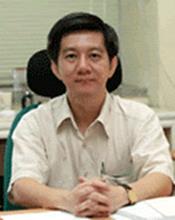 Kar-Ann Toh is a Professor in the School of Electrical and Electronic Engineering at Yonsei University, South Korea. He received the PhD degree from Nanyang Technological University (NTU), Singapore. Since then, he worked for two years in the aerospace industry prior to his post-doctoral appointments at research centers in NTU from 1998 to 2002. He was affiliated with the Institute for Infocomm Research in Singapore from 2002 to 2005 prior to his current appointment in Korea. His research interests include pattern classification, machine learning, neural networks and biometrics. He is a co-inventor of two US patents and has made several PCT filings related to biometric applications. Besides being active in publications, Dr. Toh has served as an advisor/co-chair/member of technical program committee for international conferences related to biometrics and artificial intelligence. He is/has serving/served as an Associate Editor of several international journals including IEEE Transactions on Biometrics, Behavior and Identity Science, IEEE Transactions on Information Forensics and Security, Journal of Franklin Institute, Pattern Recognition Letters, and IET Biometrics.
Kar-Ann Toh is a Professor in the School of Electrical and Electronic Engineering at Yonsei University, South Korea. He received the PhD degree from Nanyang Technological University (NTU), Singapore. Since then, he worked for two years in the aerospace industry prior to his post-doctoral appointments at research centers in NTU from 1998 to 2002. He was affiliated with the Institute for Infocomm Research in Singapore from 2002 to 2005 prior to his current appointment in Korea. His research interests include pattern classification, machine learning, neural networks and biometrics. He is a co-inventor of two US patents and has made several PCT filings related to biometric applications. Besides being active in publications, Dr. Toh has served as an advisor/co-chair/member of technical program committee for international conferences related to biometrics and artificial intelligence. He is/has serving/served as an Associate Editor of several international journals including IEEE Transactions on Biometrics, Behavior and Identity Science, IEEE Transactions on Information Forensics and Security, Journal of Franklin Institute, Pattern Recognition Letters, and IET Biometrics. 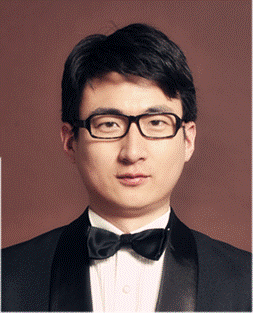 Youqing Wang (M’09-SM’12) received the B.S. degree from Shandong University, Jinan, Shandong, China, in 2003, and PhD degree in Control Science and Engineering from Tsinghua University, Beijing, China, in 2008. From 2006 to 2007, he was a Research Assistant at the Department of Chemical Engineering, The Hong Kong University of Science and Technology, Hong Kong. From 2008 to 2010, he was a Senior Investigator at the Department of Chemical Engineering, University of California, Santa Barbara, CA, USA. In 2015, he joined the University of Alberta in Edmonton, AB, Canada, as a Visiting Professor. He is currently a Professor at Beijing University of Chemical Technology, and also Shandong University of Science and Technology and. His research interests include fault-tolerant controls, state monitoring, modeling and control of biomedical processes (e.g., artificial pancreas system), and iterative learning controls. Dr. Wang was a recipient of several research awards, including the Journal of Process Control Survey Paper Prize and ADCHEM2015 Young Author Prize.
Youqing Wang (M’09-SM’12) received the B.S. degree from Shandong University, Jinan, Shandong, China, in 2003, and PhD degree in Control Science and Engineering from Tsinghua University, Beijing, China, in 2008. From 2006 to 2007, he was a Research Assistant at the Department of Chemical Engineering, The Hong Kong University of Science and Technology, Hong Kong. From 2008 to 2010, he was a Senior Investigator at the Department of Chemical Engineering, University of California, Santa Barbara, CA, USA. In 2015, he joined the University of Alberta in Edmonton, AB, Canada, as a Visiting Professor. He is currently a Professor at Beijing University of Chemical Technology, and also Shandong University of Science and Technology and. His research interests include fault-tolerant controls, state monitoring, modeling and control of biomedical processes (e.g., artificial pancreas system), and iterative learning controls. Dr. Wang was a recipient of several research awards, including the Journal of Process Control Survey Paper Prize and ADCHEM2015 Young Author Prize.  Erwin de Jong has been working with THALES Netherlands for 22 years. He started as radar engineer of tracking radars and fire control radars. Later he was a radar architect, system engineering manager and design authority of multifunction radars and surface surveillance radars. The last two years he headed the Centre of Excellence for Radar and Integrated Sensors at THALES Solutions Asia here in Singapore. In this function he collaborated with the innovative, Singapore ecosystem in the radar domain, including the NTU.
Erwin de Jong has been working with THALES Netherlands for 22 years. He started as radar engineer of tracking radars and fire control radars. Later he was a radar architect, system engineering manager and design authority of multifunction radars and surface surveillance radars. The last two years he headed the Centre of Excellence for Radar and Integrated Sensors at THALES Solutions Asia here in Singapore. In this function he collaborated with the innovative, Singapore ecosystem in the radar domain, including the NTU. 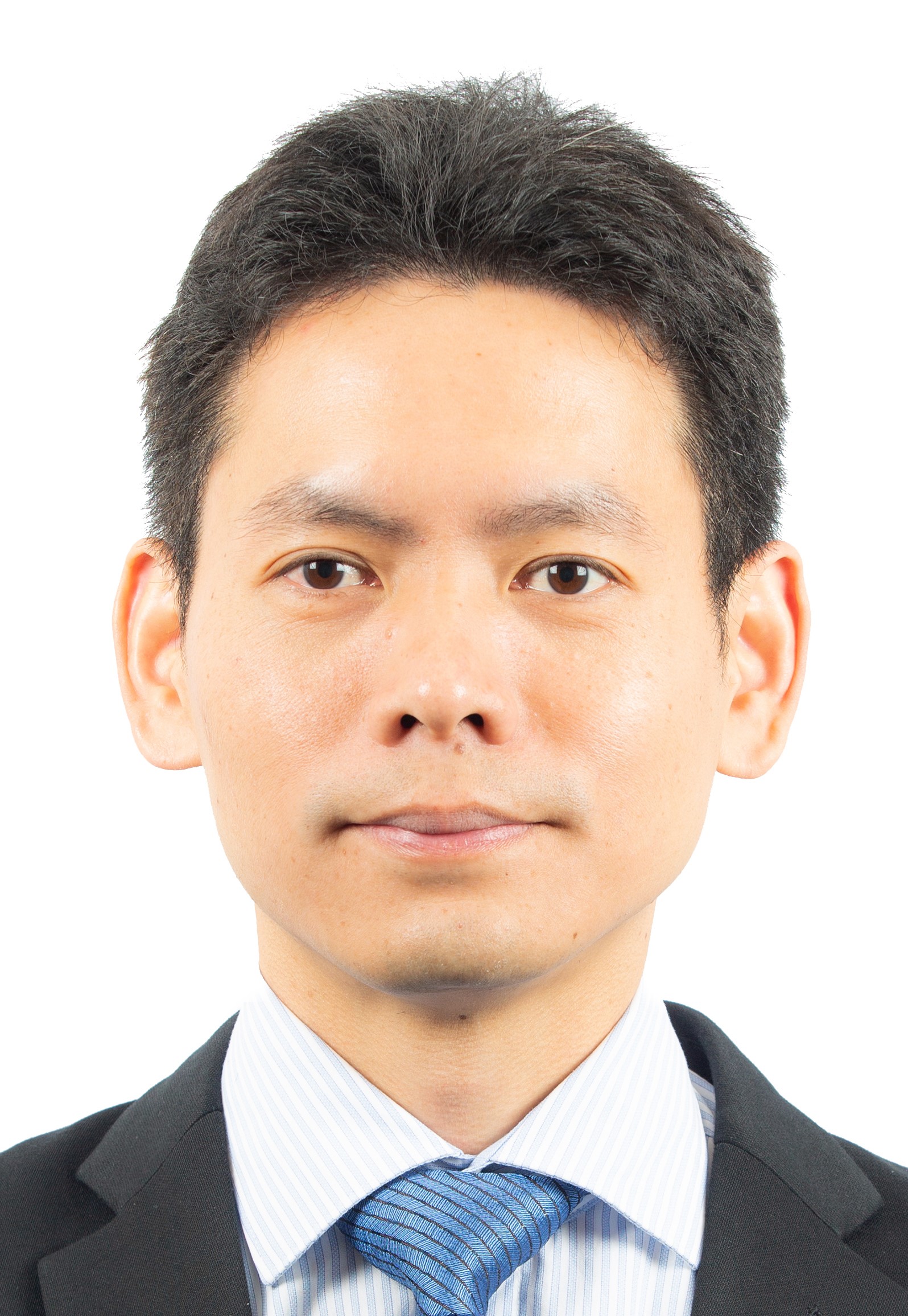 Chua Yansong did his bachelors and Masters at the School of Computing, National University of Singapore. He then went on to do his PhD in Biology (specializing in Computational Neuroscience) at the Bernstein Centre Freiburg, which is affiliated with Albert Ludwig University of Freiburg, Germany. He then joined Institute for Infocomm Research (I2R), A*STAR, as a researcher, before becoming the Principal Investigator of work package 5 under the A*STAR neuromorphic programme, a 4 year programme involving several other research institutes at A*STAR and also faculty members from both National University of Singapore and Nanyang Technological University. He is interested in brain inspired computing, and hopes that machines learn with less labels, are more intelligent, and have a much smaller carbon footprint.
Chua Yansong did his bachelors and Masters at the School of Computing, National University of Singapore. He then went on to do his PhD in Biology (specializing in Computational Neuroscience) at the Bernstein Centre Freiburg, which is affiliated with Albert Ludwig University of Freiburg, Germany. He then joined Institute for Infocomm Research (I2R), A*STAR, as a researcher, before becoming the Principal Investigator of work package 5 under the A*STAR neuromorphic programme, a 4 year programme involving several other research institutes at A*STAR and also faculty members from both National University of Singapore and Nanyang Technological University. He is interested in brain inspired computing, and hopes that machines learn with less labels, are more intelligent, and have a much smaller carbon footprint.  Dr. Juan (Helen) Zhou is an Associate Professor at the Center for Cognitive Neuroscience, Neuroscience and Behavioral Disorders Program, Duke-National University of Singapore Medical School, Singapore. She also holds a joint appointment with Clinical Imaging Research Center, NUS. Her lab studies how selective network-based vulnerability is implicated in neuropsychiatric and neurodegenerative disorders using multimodal neuroimaging and computational approaches.
Dr. Juan (Helen) Zhou is an Associate Professor at the Center for Cognitive Neuroscience, Neuroscience and Behavioral Disorders Program, Duke-National University of Singapore Medical School, Singapore. She also holds a joint appointment with Clinical Imaging Research Center, NUS. Her lab studies how selective network-based vulnerability is implicated in neuropsychiatric and neurodegenerative disorders using multimodal neuroimaging and computational approaches. Myung Hoon Sunwoo received the M.S. degree in Electrical and Electronics Engineering from Korea Advanced Institute of Science and Technology (KAIST), and the Ph.D. degree from the University of Texas at Austin in Electrical and Computer Engineering. He worked for the Electronics and Telecommunications Research Institute (ETRI) in Korea and for the Digital Signal Processor Operations, Motorola, in Austin, Texas, U.S.A. Since 1992, he has been with the School of Electrical and Computer Engineering, Ajou University in Suwon, Korea, where he is currently a full Professor.
Myung Hoon Sunwoo received the M.S. degree in Electrical and Electronics Engineering from Korea Advanced Institute of Science and Technology (KAIST), and the Ph.D. degree from the University of Texas at Austin in Electrical and Computer Engineering. He worked for the Electronics and Telecommunications Research Institute (ETRI) in Korea and for the Digital Signal Processor Operations, Motorola, in Austin, Texas, U.S.A. Since 1992, he has been with the School of Electrical and Computer Engineering, Ajou University in Suwon, Korea, where he is currently a full Professor.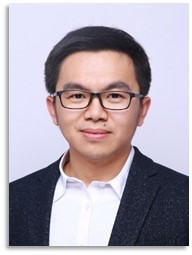 Jun ZHOU, Professor of National Distinguished Youth Experts Scheme, Head of IoT Smart ICs & Systems Group, University of Electronic Science and Technology of China. His major research interests include energy-efficient algorithm & IC co-design for intelligent sensing applications. He has published more than 60 papers in prestigious conferences and journals including ISSCC, JSSC, DAC, TCAS-I, TBioCAS, and TVLSI. His work has received the IEEE Circuits & Systems Society Seoul Chapter Award and has been reported by EE Times. He is currently a senior member of IEEE, the Associate Editor of IEEE Transactions on Very Large Scale Integration System (TVLSI), the Chair of A-SSCC Digital Circuits & Systems Sub-Committee and the Chair of Embedded AI Committee of Sichuan Institute of Electronics. He has also served as OC/TPC member for a number of prestigious IEEE conferences including ICCD, ISCAS, SOCC and DSP.
Jun ZHOU, Professor of National Distinguished Youth Experts Scheme, Head of IoT Smart ICs & Systems Group, University of Electronic Science and Technology of China. His major research interests include energy-efficient algorithm & IC co-design for intelligent sensing applications. He has published more than 60 papers in prestigious conferences and journals including ISSCC, JSSC, DAC, TCAS-I, TBioCAS, and TVLSI. His work has received the IEEE Circuits & Systems Society Seoul Chapter Award and has been reported by EE Times. He is currently a senior member of IEEE, the Associate Editor of IEEE Transactions on Very Large Scale Integration System (TVLSI), the Chair of A-SSCC Digital Circuits & Systems Sub-Committee and the Chair of Embedded AI Committee of Sichuan Institute of Electronics. He has also served as OC/TPC member for a number of prestigious IEEE conferences including ICCD, ISCAS, SOCC and DSP. 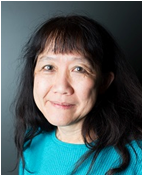 Shih-Chii Liu co-leads the Sensors group (https://sensors.ini.uzh.ch) at the Institute of Neuroinformatics, University of Zurich and ETH Zurich. She received the B. S. degree in electrical engineering from MIT and the Ph.D. degree in the Computation and Neural Systems program from the California Institute of Technology.
Shih-Chii Liu co-leads the Sensors group (https://sensors.ini.uzh.ch) at the Institute of Neuroinformatics, University of Zurich and ETH Zurich. She received the B. S. degree in electrical engineering from MIT and the Ph.D. degree in the Computation and Neural Systems program from the California Institute of Technology. Nam Ling received the B.Eng. degree from the National University of Singapore and the M.S. and Ph.D. degrees from the University of Louisiana, Lafayette, U.S.A. He is currently the Sanfilippo Family Chair Professor (University Endowed Chair) of Santa Clara University (U.S.A) and the Chair of its Department of Computer Science & Engineering. From 2002 to 2010, he was an Associate Dean for its School of Engineering. He is/was also a Guest Professor for Tianjin University, a Chair Professor and Minjiang Scholar for Fuzhou University, a Cuiying Chair Professor for Lanzhou University, a Distinguished Professor for Xi’an University of Posts & Telecommunications, a Guest Professor for Shanghai Jiao Tong University, a Guest Professor for Zhongyuan University of Technology (China), and a Consulting Professor for the National University of Singapore. He has more than 210 publications (including books) in video/image coding and systolic arrays. He also has seven adopted standards contributions and has filed/granted more than 20 U.S./European/PCT patents. He is an IEEE Fellow due to his contributions to video coding algorithms and architectures. He is also an IET Fellow. He was named IEEE Distinguished Lecturer twice and was also an APSIPA Distinguished Lecturer. He received the IEEE ICCE Best Paper Award (First Place) and the IEEE Umedia Best/Excellent Paper Awards (three times). He received six awards from Santa Clara University, four at the University level (Outstanding Achievement, Recent Achievement in Scholarship, President’s Recognition, and Sustained Excellence in Scholarship) and two at the School/College level (Researcher of the Year and Teaching Excellence). He has served as Keynote Speaker for IEEE APCCAS, VCVP (twice), JCPC, IEEE ICAST, IEEE ICIEA, IET FC & U-Media, IEEE U-Media, Workshop at XUPT (twice), ICCIT, as well as a Distinguished Speaker for IEEE ICIEA. He is/was General Chair/Co-Chair for IEEE Hot Chips, VCVP (twice), IEEE ICME, IEEE U-Media (five times), and IEEE SiPS. He was an Honorary Co-Chair for IEEE Umedia. He has also served as Technical Program Co-Chair for IEEE ISCAS, APSIPA ASC, IEEE APCCAS, IEEE SiPS (twice), DCV, and IEEE VCIP. He was Technical Committee Chair for IEEE CASCOM TC and IEEE TCMM, and has served as Guest Editor/Associate Editor for IEEE TCAS-I, IEEE J-STSP, Springer JSPS, Springer MSSP, and other journals. He has delivered more than 120 invited colloquia worldwide and has served as Visiting Professor/Consultant/Scientist for many institutions/companies.
Nam Ling received the B.Eng. degree from the National University of Singapore and the M.S. and Ph.D. degrees from the University of Louisiana, Lafayette, U.S.A. He is currently the Sanfilippo Family Chair Professor (University Endowed Chair) of Santa Clara University (U.S.A) and the Chair of its Department of Computer Science & Engineering. From 2002 to 2010, he was an Associate Dean for its School of Engineering. He is/was also a Guest Professor for Tianjin University, a Chair Professor and Minjiang Scholar for Fuzhou University, a Cuiying Chair Professor for Lanzhou University, a Distinguished Professor for Xi’an University of Posts & Telecommunications, a Guest Professor for Shanghai Jiao Tong University, a Guest Professor for Zhongyuan University of Technology (China), and a Consulting Professor for the National University of Singapore. He has more than 210 publications (including books) in video/image coding and systolic arrays. He also has seven adopted standards contributions and has filed/granted more than 20 U.S./European/PCT patents. He is an IEEE Fellow due to his contributions to video coding algorithms and architectures. He is also an IET Fellow. He was named IEEE Distinguished Lecturer twice and was also an APSIPA Distinguished Lecturer. He received the IEEE ICCE Best Paper Award (First Place) and the IEEE Umedia Best/Excellent Paper Awards (three times). He received six awards from Santa Clara University, four at the University level (Outstanding Achievement, Recent Achievement in Scholarship, President’s Recognition, and Sustained Excellence in Scholarship) and two at the School/College level (Researcher of the Year and Teaching Excellence). He has served as Keynote Speaker for IEEE APCCAS, VCVP (twice), JCPC, IEEE ICAST, IEEE ICIEA, IET FC & U-Media, IEEE U-Media, Workshop at XUPT (twice), ICCIT, as well as a Distinguished Speaker for IEEE ICIEA. He is/was General Chair/Co-Chair for IEEE Hot Chips, VCVP (twice), IEEE ICME, IEEE U-Media (five times), and IEEE SiPS. He was an Honorary Co-Chair for IEEE Umedia. He has also served as Technical Program Co-Chair for IEEE ISCAS, APSIPA ASC, IEEE APCCAS, IEEE SiPS (twice), DCV, and IEEE VCIP. He was Technical Committee Chair for IEEE CASCOM TC and IEEE TCMM, and has served as Guest Editor/Associate Editor for IEEE TCAS-I, IEEE J-STSP, Springer JSPS, Springer MSSP, and other journals. He has delivered more than 120 invited colloquia worldwide and has served as Visiting Professor/Consultant/Scientist for many institutions/companies.  Dongyun LIN received the B.S. degree in Information Engineering in Beijing Institute of Technology (BIT), China and the Ph.D. degree from School of Electrical and Electronic Engineering in Nanyang Technological University, Singapore. He is currently working as a research scientist in the department of Visual Intelligence of Institute for Infocomm (I2R), A*STAR, Singapore. His research interests cover machine learning, computer vision, deep learning in biomedical images.
Dongyun LIN received the B.S. degree in Information Engineering in Beijing Institute of Technology (BIT), China and the Ph.D. degree from School of Electrical and Electronic Engineering in Nanyang Technological University, Singapore. He is currently working as a research scientist in the department of Visual Intelligence of Institute for Infocomm (I2R), A*STAR, Singapore. His research interests cover machine learning, computer vision, deep learning in biomedical images. 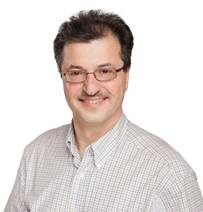 Dr. Ramin K. Poorfard received his Ph.D. from University of Toronto in 1995. Upon graduation, he joined Bell Labs in March of 1995 where he was involved in the GSM base-band product development for cellular phones. He received several promotions while working at Bell Labs, the last of which was in 1999 when he was promoted to the rank of Distinguished Member of Technical Staff.
Dr. Ramin K. Poorfard received his Ph.D. from University of Toronto in 1995. Upon graduation, he joined Bell Labs in March of 1995 where he was involved in the GSM base-band product development for cellular phones. He received several promotions while working at Bell Labs, the last of which was in 1999 when he was promoted to the rank of Distinguished Member of Technical Staff.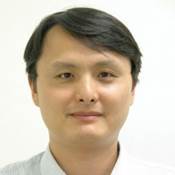 Chuan-Yu Chang received the Ph.D. degree in electrical engineering from National Cheng Kung University, Taiwan, in 2000. He is currently the CTO (Chief Technology Officer) of Service Systems Technology Center, Industrial Technology Research Institute, Taiwan. He is also a Distinguished Professor at the Department of Computer Science and Information Engineering, National Yunlin University of Science and Technology, Taiwan. His current research interests include computational intelligence and their applications to medical image processing, automated optical inspection, emotion recognition, and pattern recognition. In the above areas, he has more than 200 publications in journals and conference proceedings.
Chuan-Yu Chang received the Ph.D. degree in electrical engineering from National Cheng Kung University, Taiwan, in 2000. He is currently the CTO (Chief Technology Officer) of Service Systems Technology Center, Industrial Technology Research Institute, Taiwan. He is also a Distinguished Professor at the Department of Computer Science and Information Engineering, National Yunlin University of Science and Technology, Taiwan. His current research interests include computational intelligence and their applications to medical image processing, automated optical inspection, emotion recognition, and pattern recognition. In the above areas, he has more than 200 publications in journals and conference proceedings.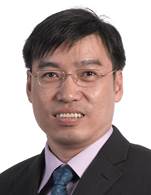 Chip Hong CHANG received the B.Eng. (Hons.) degree from the National University of Singapore, in 1989, and the M. Eng. and Ph.D. degrees from Nanyang Technological University (NTU), Singapore, in 1993 and 1998, respectively. He served as a Technical Consultant in industry prior to joining the School of Electrical and Electronic Engineering (EEE), NTU, in 1999, where he is currently an Associate Professor. He holds joint appointments with the university as Assistant Chair of Alumni of the School of EEE from June 2008 to May 2014, Deputy Director of the Center for High Performance Embedded Systems from 2000 to 2011, and Program Director of the Center for Integrated Circuits and Systems from 2003 to 2009. He has coedited four books, published ten book chapters, around 100 international journal papers (~70 are IEEE) and more than 170 refereed international conference papers. His research interests include hardware security, residue and unconventional number systems, low-power arithmetic circuits, digital filter design and digital image processing. He has delivered several keynotes and more than 40 invited colloquia, including the tutorials at the 2017 Asia and South Pacific Design Automation Conference (ASP-DAC 2017) and 2017 IEEE International Symposium on Circuits and Systems (ISCAS 2017). He is the recipient of the 2006 NTU Research Outstanding and Award Recognition, 2007 British High Commission Collaboration Development Award for Microelectronics and Embedded Systems and Canada Microsystems Strategic Alliance of Quebec Collaboration Development Award, co-recipient of the PrimeAsia-2010 Gold Leaf and Silver Leaf Certificates, and coauthor of the finalist of AsianHOST 2017 Cisco best paper award, ISCAS 2015 best student paper award competition and VLSI 95 best paper award.
Chip Hong CHANG received the B.Eng. (Hons.) degree from the National University of Singapore, in 1989, and the M. Eng. and Ph.D. degrees from Nanyang Technological University (NTU), Singapore, in 1993 and 1998, respectively. He served as a Technical Consultant in industry prior to joining the School of Electrical and Electronic Engineering (EEE), NTU, in 1999, where he is currently an Associate Professor. He holds joint appointments with the university as Assistant Chair of Alumni of the School of EEE from June 2008 to May 2014, Deputy Director of the Center for High Performance Embedded Systems from 2000 to 2011, and Program Director of the Center for Integrated Circuits and Systems from 2003 to 2009. He has coedited four books, published ten book chapters, around 100 international journal papers (~70 are IEEE) and more than 170 refereed international conference papers. His research interests include hardware security, residue and unconventional number systems, low-power arithmetic circuits, digital filter design and digital image processing. He has delivered several keynotes and more than 40 invited colloquia, including the tutorials at the 2017 Asia and South Pacific Design Automation Conference (ASP-DAC 2017) and 2017 IEEE International Symposium on Circuits and Systems (ISCAS 2017). He is the recipient of the 2006 NTU Research Outstanding and Award Recognition, 2007 British High Commission Collaboration Development Award for Microelectronics and Embedded Systems and Canada Microsystems Strategic Alliance of Quebec Collaboration Development Award, co-recipient of the PrimeAsia-2010 Gold Leaf and Silver Leaf Certificates, and coauthor of the finalist of AsianHOST 2017 Cisco best paper award, ISCAS 2015 best student paper award competition and VLSI 95 best paper award.